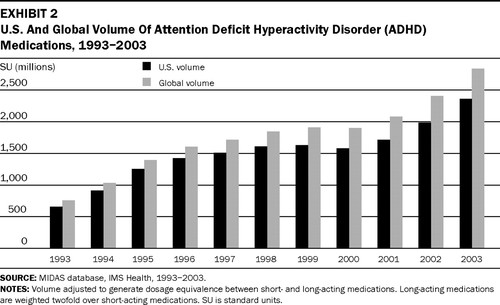Brain Health
There is hope if you are suffering from mental health and brain-based conditions. A Functional Medicine approach treats more than what is happening in the brain. This holistic method looks past the symptoms to find the root causes that affect brain health.
Alzheimer's • Dementia • Brain fog • Anxiety • Memory Loss • Depression • Multiple Sclerosis (MS) • Parkinson's
Brain health is a growing concern as we are seeing more and more people diagnosed with these conditions: dementia, Alzheimer’s disease, depression, anxiety, autism, brain fog, and other mental health disorders. The standard medical approach is to use medication, but these prescriptions cover the symptoms without getting to the foundational health issues. On the other hand, functional medicine offers a natural approach to promoting the healing function to improve brain conditions and other chronic illnesses.
While genetics play a role in brain health, lifestyle and environment are the notable factors that lead to these health problems. Many patients have early indications of dementia before the significant symptoms appear. It doesn’t matter if you are in the early or late stages of the diagnosis. Proactively implementing a holistic health plan as soon as possible can turn things around and restore your health.
40 million
Americans adults experience some kind of anxiety disorder 1
0%
of the populationThe total volume of ADHD has increased over 300% in a ten year period. 2

3 out of 5
Americans will struggle with brain disease in their lifetime. 3

- https://adaa.org/about-adaa/press-room/facts-statistics#:~:text=Anxiety%20disorders%20are%20the%20most,of%20the%20population%20every%20year.
- https://www.healthaffairs.org/doi/full/10.1377/hlthaff.26.2.450
- https://www.heart.org/en/health-topics/brain-health
"The mind and body are not separate units, but one integrated system. How we act and what we think, eat, and feel are all related to our health."
- Bernie Siegel
Our Approach
Functional medicine takes a proactive approach to rebalance overall health and get to lifestyle issues.
Physical Activity & Exercise
Early research has found a connection between exercise and the brain changes associated with dementia and other brain conditions. When you exercise regularly, it has a positive impact on dopamine and serotonin, which are essential factors for mood balancing and overall brain health.
diet & nutrition
When you look at the eating habits of older adults worldwide, patterns emerge, showing trends that affect mental health and dementia. Evidence shows that a diet rich in fruit and vegetables can have a positive impact on brain health. At the same time, it’s essential to avoid inflammatory foods that can result in chronic conditions throughout the body.
Sleep
Healthy sleep habits are critical to giving the body time to heal and recover at the end of each day. When sleep patterns are changing, it could be an early sign of brain health issues. Getting to the root of these issues and improving sleep patterns are two critical steps to address overall health.
Stress reduction & Mental health
When stress levels are high, hormonal changes can result in an increase in systemic inflammation. Not only does this inflammation affect the body, but it can also take a toll on the brain. Additionally, stress is a factor that can lead to depression, which is a risk factor for Alzheimer’s disease and other forms of dementia. Improving mental health is part of our holistic approach to an effective treatment plan.
Harmful substance reduction
It’s no surprise that the use of alcohol and illicit drugs can affect cognitive function and a person’s mental state. The chronic use of these substances can take a toll over time. Reducing or eliminating the use of drugs and alcohol is a critical step to help the brain and body heal.
Healthy Relationships
Dementia and other mental health issues have a significant impact on relationships. At the same time, it’s possible that relationship stress could increase the risk of these mental health conditions. Our functional medicine approach addresses the importance of connection in relationships, which helps to reduce the risk of a variety of mental health issues.
Ultimately, the goal of functional medicine is to get the root issues that are contributing to brain health and chronic illnesses. Lifestyle changes, paired with holistic health practices, can have an undeniable effect on overall health. Instead of covering up the symptoms, our approach is to focus on the foundational issues, which can positively improve your mental health.
Early prevention is always the best solution to protect the brain against irreversible damage. Don’t delay a conversation with a functional medicine doctor to explore potential options to slow (and potentially reverse) a variety of brain health issues, such as dementia, Alzheimer’s anxiety, and depression.
Brain-Immune Connection
The Glial system affects immune function in the brain and throughout the body. It’s an extensive system, with 10 – 15 times more glial cells than neurons in the brain. Similar to Leaky Gut, a Leaky Blood Brain barrier can take a toll on overall health. Functional Medicine helps optimize the performance of glial cells, which can positively impact the immune response.
Brain-Glucose-Oxygen Connection
Both glucose (blood sugar) and oxygen play important roles in supporting the brain's health and function. Optimal fuel levels for the brain are essential, but these nutrient sources can be disrupted because of metabolic issues. Using Functional Medicine to improve oxygen and blood sugar levels can be a critical step in improving brain function and reducing the risk of dementia (Type 3 diabetes).
Brain-Hormone Connection
Both male and female hormones affect behavioral and neural functions in the brain, so hormone imbalance can lead to cognitive function issues, mood disorders, motor coordination, and more. Balancing hormones through Functional Medicine is essential for both men and women. These lifestyle modifications can improve the connections that regular sex hormones and more.
Brain-Gut Connection
Researchers have found links between gut health and brain function, which is why digestive issues can play a role in mood and mental conditions. Trouble in the brain sends signals to the gut, and trouble in the intestine sends signals to the brain. Functional Medicine addresses the Polyvagal Theory through Vagus Nerve management – helping to regulate the central nervous system.
Stress-Brain Connection
The amygdala is part of the brain's limbic system, helping you process strong emotions – such as pleasure and fear. When the body is in chronic stress, it can cause limbic system overactivity and prefrontal cortex under-activity. This brain dysregulation can be rebalanced through lifestyle modifications and Functional Medicine.
Brain Health and Concussions
Repeated brain injuries can have an undeniable effect on the brain, resulting in longer-term cognitive health issues. When a concussion happens, it causes swelling in the brain that can affect the brain and cognitive function over time. Chiropractic Care and Functional Medicine are necessary modalities to reduce acute and chronic inflammation, helping you maintain improved brain health.
Traumatic Brain Injury (TBI) and Brain Health
Physical damage to the brain can severely damage the brain, including bruising, bleeding, torn tissues, and more. TBI can lead to long-term complications, which is why it’s essential to be proactive in managing the symptoms and addressing the root of the inflammation. Both Chiropractic and Functional Medicine can help minimize the ongoing effects of Traumatic Brain Injury.
Are you ready to start feeling better?
Then it’s time to look at the root causes that are affecting brain health. Book an appointment with our clinic to see how you can benefit from a functional medicine approach.
